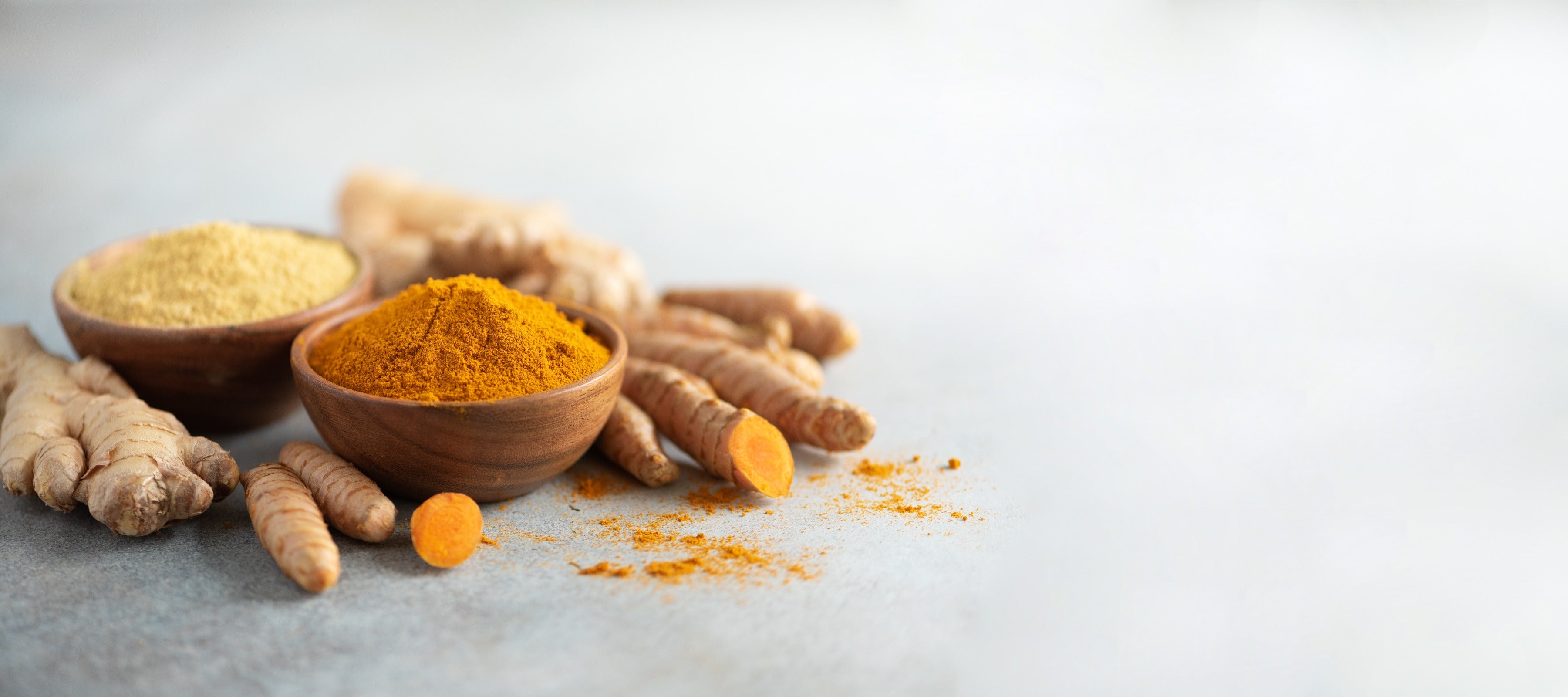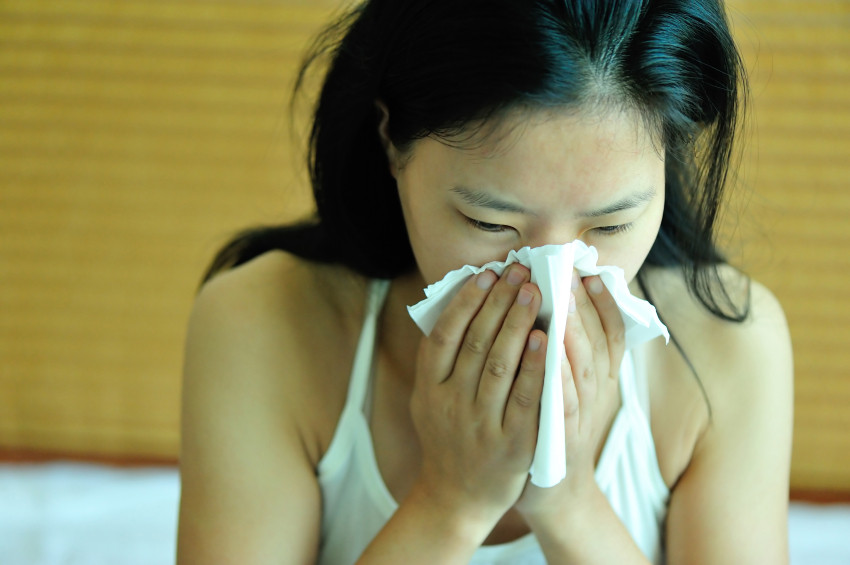Can you naturally build immunity to allergies

How to Build Immunity to Allergies Naturally: 8 Treatments [Natural]
Vitamin therapy with high vitamin C, zinc, and magnesium boosts immunity and effectively treats allergies. Glutathione IV pushes are also beneficial.
Allergy medications can provide temporary relief, but building immunity against allergies naturally may be more effective. The body's immune system reacts adversely to harmless substances, resulting in irritating symptoms such as sneezing, itchiness, and congestion.
In this blog post, we'll explore some of the best ways to naturally boost your immune system to combat allergies and enjoy a symptom-free life once again.
How to Build Immunity to Allergies Naturally: 8 Best Ways
One way to do this is by consuming anti-inflammatory supplements that can help reduce the allergic response of your immune system. Here are some natural anti-inflammatory supplements that you can incorporate into your daily life to build your immunity against allergies:
Natural Anti-Inflammatory Supplements
Turmeric

Turmeric is a spice used in traditional medicine for centuries due to its anti-inflammatory and antioxidant properties. Curcumin, the active compound in turmeric, has been shown to suppress the activities of specific cells that contribute to allergies.
Ginger
Ginger is another spice commonly used in traditional medicine that can help reduce allergy symptoms by inhibiting the activation of specific immune cells responsible for allergic reactions.
Quercetin
Quercetin is a flavonoid found in various foods and supplements that have been shown to have anti-allergic and anti-inflammatory effects. It helps to suppress the release of histamine, a compound that causes allergy symptoms.
Adding these supplements to your daily routine can help reduce inflammation in your body, which can help protect your immune system against allergens. It is essential to consult with a healthcare professional before starting any supplement regimen.
Eating a Healthy Diet
Eating a healthy diet is one way to achieve this. Here are some food items that can help build your immunity against allergies:
Foods Rich in Vitamins C, D, and E
These vitamins are essential for healthy immune function and contain anti-inflammatory properties helpful in treating allergies. Foods such as citrus fruits, berries, leafy greens, nuts, and seeds are all excellent sources of these vitamins.
Foods Rich in Omega-3 Fatty Acids
Omega-3 fatty acids have anti-inflammatory properties and can help reduce allergy symptoms. Foods such as fatty fish, flaxseeds, chia seeds, and walnuts are all rich sources of omega-3 fatty acids.
Incorporating these foods into your diet can help improve your immune function and reduce inflammation, which enhances immunity to allergens. Remember to seek medical advice before making any significant changes to your diet.
Building a Strong Gut Microbiome
Your gut microbiome, the collection of microorganisms in your digestive tract, plays a vital role in your immune system function. A balanced gut microbiome can help protect against allergens and other harmful invaders. Here are some ways that you can build a robust gut microbiome:
Importance of a Balanced Gut Microbiome
Balanced gut microbiomes help prevent and manage allergies by improving immune function, reducing inflammation, and promoting healthy digestion.
Happy Immunization, No Tears
Immunizations with a Smile. Our Numbing Cream Ensures Painless Immunizations.
Eating Fermented Foods
Fermented foods such as yogurt, kefir, kimchi, and sauerkraut are good sources of probiotics, which help improve gut health and strengthen your immune system.
Taking Prebiotic Supplements
Prebiotics are dietary fibers that help feed the friendly bacteria in your gut. Prebiotic supplements or consuming foods such as garlic, onions, and oats can help improve gut health.
Sleep Your Way to a Stronger Immune System
Adequate sleep is crucial for a healthy and functional immune system. Lack of sleep can weaken your immune system and make you more susceptible to allergies and other illnesses. Here are some tips for improving your sleep quality:
Sleep and Immune Function
During sleep, your body produces immune cells and proteins that help protect against harmful invaders. Lack of sleep can disrupt this process and weaken your immune system.
Tips for Improving Sleep Quality
A consistent sleep schedule, improving sleep environment, reducing screen time before bed, avoiding caffeine and alcohol, and engaging in relaxation techniques such as meditation can all help improve sleep quality.
It is often overlooked that sleep can play a role in building immunity to allergies. Aim
Build Immunity to Allergies Naturally: Other 4 Remedies for Boosting
Many people who suffer from allergies seek natural remedies to boost their immune system and alleviate their allergy symptoms without relying solely on medications. We'll explore some natural remedies for boosting immunity against allergies.
Saline Nasal Rinses

Saline nasal rinses involve washing the nasal passages with a saltwater solution. This solution helps clear mucus, allergens, and other irritants from the nasal passages. This process helps relieve nasal congestion, postnasal drip, and sneezing associated with allergies. The benefits of regular saline nasal rinses include:
- Reduced inflammation and swelling in the nasal passages.
- Reduced nasal congestion.
- Reduced mucus production.
- Reduced severity of allergic reactions.
Acupuncture
Acupuncture is a highly effective natural remedy that involves the insertion of needles at specific points in the body to stimulate the immune system. Acupuncture aims to balance the energy flow (known as Qi) throughout the body, modulating the body's immune response and helping alleviate allergy symptoms. Some benefits of acupuncture for allergies include:
- Reduced inflammation.
- Reduced nasal congestion.
- Reduced itchiness and sneezing.
- Increased immune response.
Steam Inhalation
Steam inhalation is a natural remedy that involves inhaling warm, moist air. This treatment aims to open up the nasal passages, making breathing easier. Steam inhalation may help relieve allergy symptoms such as:
- Nasal congestion.
- Sinus pressure.
- Headaches.
- Coughing.
Avoiding Triggers
Avoiding triggers is an essential step to boost immunity against allergies naturally. These triggers vary from person to person and may include environmental factors, food allergies, and medications. Avoiding triggers can reduce the risk of an allergic reaction and boost your body's natural defenses. Some tips for preventing allergy triggers include:
- Tracking your symptoms to identify triggers.
- Regularly cleaning your living spaces to reduce allergens.
- Wearing protective gear when dealing with potential allergens.
- Avoiding medications that may cause an allergic reaction.
Happy Immunization, No Tears
Immunizations with a Smile. Our Numbing Cream Ensures Painless Immunizations.
Build Immunity to Allergies Naturally: Factors that Affect
We will explore the three key factors that affect immunity against allergies: genetic disposition, environmental factors, and nutritional factors.
Genetic Disposition
One of the leading factors that determine allergies is genetic inheritance. If a family member has allergies, there is a higher likelihood that you will also develop allergies to one or more allergens. Genetics do not always have to seal your fate regarding allergies. There are still ways to boost your immunity and reduce the risk of developing allergies, such as:
- Eating a balanced diet rich in nutrients.
- Regular exercise and physical activities.
- Avoiding tobacco smoke and other harmful environmental pollutants.
Environmental Factors
The environment also plays a significant role in triggering allergies. Environmental allergens can be found in the air, the ground, and our homes and workplaces. Some common ecological allergens include pollen, pet dander, dust mites, and mold. There are ways to manage your environment and reduce exposure to allergens. Some tips to help you ward off environmental allergies include:
- Using air purifiers and filters at home.
- Regular cleaning of bedding, furniture, and carpets.
- Wearing a protective mask when cleaning or working in dusty areas.
Nutritional Factors

Your diet plays a critical role in building immunity against allergies. A healthy and balanced diet can help boost immunity, reduce inflammation, and strengthen your body's defenses against allergens.
Conclusion
A natural approach to building immunity against allergies can significantly benefit your health and well-being. By incorporating supplements like Turmeric and Ginger, eating a balanced diet, building a solid gut microbiome, and getting enough sleep, you can help keep your body healthy and prevent allergies from becoming a significant issue.
Saline nasal rinses, acupuncture, and steam inhalation can relieve allergy symptoms. While factors like genetics, environment, and nutrition can all impact your immunity against allergies, incorporating natural remedies can go a long way in helping you feel your best. As always, we encourage you to seek professional advice and continue researching ways to bolster your immunity against allergies.
How to boost your immune system
How can you improve your immune system? On the whole, your immune system does a remarkable job of defending you against disease-causing microorganisms. But sometimes it fails: A germ invades successfully and makes you sick. Is it possible to intervene in this process and boost your immune system? What if you improve your diet? Take certain vitamins or herbal preparations? Make other lifestyle changes in the hope of producing a near-perfect immune response?
What can you do to boost your immune system?
The idea ofboosting your immunityis enticing, but the ability to do so has proved elusive for several reasons. The immune system is precisely that a system, not a single entity. To function well, it requires balance and harmony. There is still much that researchers don't know about the intricacies and interconnectedness of the immune response. For now, there are no scientifically proven direct links between lifestyle and enhanced immune function.
But that doesn't mean the effects of lifestyle on the immune system aren't intriguing and shouldn't be studied. Researchers are exploring the effects of diet, exercise, age, psychological stress, and other factors on the immune response, both in animals and in humans. In the meantime, general healthy-living strategies make sense since they likely help immune function and they come with other proven health benefits.
Immunity in action
A healthy immune system can defeat invading pathogens as shown above, where two bacteria are no match for the white blood cellthat engulfs and kills them (see arrows). Photos courtesy of Michael N. Starnbach, Ph.D., Harvard Medical School |
Healthy ways to strengthen your immune system
Your first line of defense is tochoose a healthy lifestyle. Following general good-health guidelines is the single best step you can take toward naturally keeping your immune system working properly. Every part of your body, including your immune system, functions better when protected from environmental assaults and bolstered by healthy-living strategies such as these:
- Don't smoke.
- Eat a diet high in fruits and vegetables.
- Exercise regularly.
- Maintain ahealthy weight.
- If you drink alcohol, drink only in moderation.
- Get adequate sleep.
- Take steps to avoid infection, such as washing your hands frequently and cooking meats thoroughly.
- Try to minimize stress.
- Keep current with all recommended vaccines. Vaccines prime your immune system to fight off infections before they take hold in your body.
Increase immunity the healthy way
Many products on store shelves claim to boost or support immunity. But the concept of boosting immunity actually makes little sense scientifically. In fact, boosting the number of cells in your body immune cells or others is not necessarily a good thing. For example, athletes who engage in "blood doping" pumping blood into their systems to boost their number of blood cells and enhance their performance run the risk of strokes.
Attempting to boost the cells of your immune system is especially complicated because there are so many different kinds of cells in the immune system that respond to so many different microbes in so many ways. Which cells should you boost, and to what number? So far, scientists do not know the answer. What is known is that the body is continually generating immune cells. Certainly, it produces many more lymphocytes than it can possibly use. The extra cells remove themselves through a natural process of cell death called apoptosis some before they see any action, some after the battle is won. No one knows how many cells or what the best mix of cells the immune system needs to function at its optimum level.
Immune system and age
As we age, our immune response capability becomes reduced, which in turn contributes to more infections and more cancer. As life expectancy in developed countries has increased, so too has the incidence of age-related conditions.
While some people age healthily, the conclusion of many studies is that, compared with younger people, the elderly are more likely to contract infectious diseases and, even more importantly, more likely to die from them. Respiratory infections,including,influenza, theCOVID-19 virus, and particularly pneumonia are leading causes of death in people over 65 worldwide. No one knows for sure why this happens, but some scientists observe that this increased risk correlates with a decrease in T cells, possibly from the thymus atrophying with age and producing fewer T cells to fight off infection. Whether this decrease in thymus function explains the drop in T cells or whether other changes play a role is not fully understood. Others are interested in whether the bone marrow becomes less efficient at producing the stem cells that give rise to the cells of the immune system.
A reduction in immune response to infections has been demonstrated by older people's response to vaccines. For example, studies of influenza vaccines have shown that for people over age 65, the vaccine is less effective compared to healthy children (over age 2). But despite the reduction in efficacy, vaccinations for influenza, COVID-19 andS. pneumoniaehave significantly lowered the rates of sickness and death in older people when compared with no vaccination.
There appears to be a connection between nutrition and immunity in the elderly. A form of malnutrition that is surprisingly common even in affluent countries is known as "micronutrient malnutrition." Micronutrient malnutrition, in which a person is deficient in some essential vitamins and trace minerals that are obtained from or supplemented by diet, can happen in the elderly. Older people tend to eat less and often have less variety in their diets. One important question is whether dietary supplements may help certain people maintain a healthier immune system.
Diet and your immune system
Like any fighting force, the immune system army marches on its stomach. Healthy immune system warriors need good, regular nourishment. Scientists have long recognized that people who are malnourished are more vulnerable to infectious diseases. For example, researchers don't know whether any particular dietary factors, such as processed foods or high simple sugar intake, adversely affects immune function.
There is some experimental evidence that variousmicronutrient deficiencies for example, deficiencies of zinc, selenium, iron, copper, folic acid, and vitamins A, B6, C, and E alter cellular immune responses. However, whether that translates to changes in the human immune system and impacts on health remain unknown.
So, what can you do? If you suspect yourdietis not providing you with all your micronutrient needs maybe, for instance, you don't like vegetables taking a daily multivitamin and mineral supplement may bring other health benefits, beyond any possibly beneficial effects on the immune system. Taking megadoses of a single vitamin does not. More is not necessarily better.
Improve immunity with herbs and supplements?
Walk into a store, and you will find bottles of pills and herbal preparations that claim to "support immunity" or otherwise boost the health of your immune system. Although some preparations have been found to alter some components of immune function, thus far there is no evidence that they actually bolster immunity to the point where you are better protected against infection and disease. Demonstrating whether an herb or any substance, for that matter can enhance immunity is, as yet, a highly complicated matter. Scientists don't know, for example, whether an herb that seems to raise the levels of antibodies in the blood is actually doing anything beneficial for overall immunity.
Does being cold give you a weak immune system?
Almost every mother has said it: "Wear a jacket or you'll catch a cold!" Is she right? Probably not, exposure to moderate cold temperatures doesn't increase your susceptibility to infection. There are two reasons why winter is "cold and flu season." In the winter, people spend more time indoors, in closer contact with other people who can pass on their germs. Also the influenza virus stays airborne longer when air is cold and less humid.
A group of Canadian researchers that has reviewed hundreds of medical studies on the subject and conducted some of its own research concludes that there's no need to worry about moderate cold exposure it appears to have no detrimental effect on the human immune system. Should you bundle up when it's cold outside? The answer is "yes" if you're uncomfortable, or if you're going to be outdoors for an extended period where such problems as frostbite and hypothermia are a risk. But don't worry about immunity.
Exercise: Good or bad for immunity?
Regular exercise is one of the pillars of healthy living. It improves cardiovascular health, lowers blood pressure, helps control body weight, and protects against a variety of diseases. But does it help to boost your immune system naturally and keep it healthy? Just like a healthy diet, exercise can contribute to general good health and therefore to a healthy immune system.
Image: lzf/Getty Images











